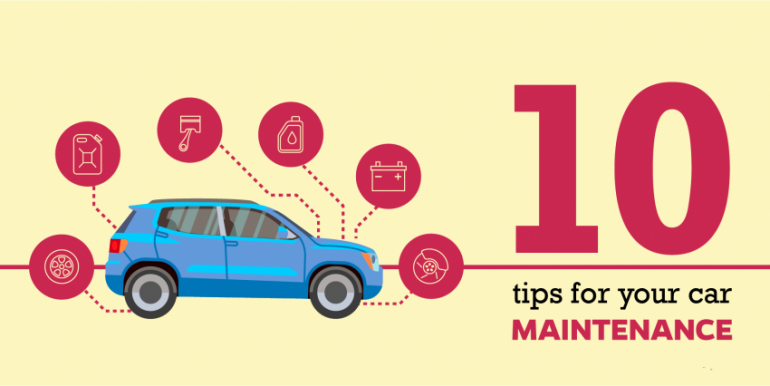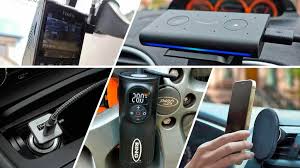Owning a car is a significant investment, and extending its life is essential to get the most value out of it. Regular car maintenance not only ensures your vehicle runs efficiently but also helps you avoid costly repairs down the road. In 2022, with rapidly advancing automotive technology and rising repair costs, it’s more important than ever to take proper care of your car.
Here are the top 10 car maintenance tips that can help extend your vehicle’s life, enhance its performance, and keep it running smoothly for years to come.
1. Regular Oil Changes
One of the most important maintenance tasks for any car is ensuring the engine oil is changed at regular intervals. Oil lubricates engine components, reducing friction and preventing wear and tear. Over time, oil breaks down, losing its effectiveness, which can lead to engine overheating or damage.
Tip:
Change your oil every 5,000 to 7,500 kilometers, or as recommended by your vehicle manufacturer. Always use the recommended oil grade for your car. Don’t forget to check the oil level regularly and top it up when necessary.
2. Monitor Tire Health and Pressure
Your tires are the only part of your car that makes contact with the road, so maintaining them in top condition is crucial for safety and efficiency. Under-inflated or worn-out tires can reduce fuel efficiency, affect handling, and increase the risk of accidents.
Tip:
Check tire pressure at least once a month. The correct pressure is usually indicated on a sticker inside the driver’s door frame or in the owner’s manual. Also, inspect the tires for signs of damage or excessive wear. Rotate your tires every 10,000 to 12,000 kilometers to ensure even wear.
3. Replace Air and Cabin Filters
Air filters are responsible for keeping dirt, dust, and debris from entering the engine and cabin. A clogged air filter can reduce engine efficiency, decrease fuel economy, and affect the car’s overall performance. Similarly, a dirty cabin air filter can negatively impact the air quality inside the vehicle.
Tip:
Replace the engine air filter every 12,000 to 15,000 kilometers and the cabin air filter every 15,000 to 20,000 kilometers, or more frequently if you drive in dusty conditions.
4. Keep the Cooling System in Check
Your vehicle’s cooling system plays a vital role in preventing the engine from overheating. Regular maintenance of the cooling system, including the radiator and coolant levels, can prevent expensive engine damage.
Tip:
Check coolant levels regularly and top up with the correct type of coolant as needed. Make sure the radiator is free of debris, and flush the coolant system every 2-3 years to remove any built-up sludge or contaminants. If the coolant is discolored or the engine temperature gauge rises, it’s time for a checkup.
5. Maintain Brake System
The brake system is arguably the most important safety feature in your vehicle, and it’s vital to maintain it properly. Worn-out brake pads can lead to reduced stopping power and potentially dangerous driving conditions.
Tip:
Inspect your brake pads and rotors regularly, especially if you notice any unusual noises like squealing or grinding when braking. Replace brake pads every 30,000 to 50,000 kilometers, depending on driving habits and the type of vehicle.
6. Check Battery Health
A reliable battery is essential for starting your car and powering the electrical systems. Batteries typically last around 3 to 5 years, but their lifespan can vary depending on climate, driving habits, and vehicle usage.
Tip:
Inspect the battery for corrosion or any signs of wear, such as leaking or a swollen case. Clean the battery terminals regularly and check the battery voltage. If your car is slow to start or if the battery warning light comes on, it may be time to replace the battery.
7. Keep the Fuel System Clean
A clean fuel system is essential for your car’s performance, as it ensures the engine is receiving the right amount of fuel. Over time, fuel injectors and other components can get clogged with dirt, carbon, or other contaminants, leading to poor fuel efficiency and engine performance.
Tip:
Use a fuel system cleaner every 15,000 kilometers or as recommended by your car’s manufacturer. Regular use of high-quality fuel can also help keep your fuel system clean.
8. Change Transmission Fluid
The transmission is a complex system that shifts gears to keep your vehicle moving. Whether you have a manual or automatic transmission, keeping the fluid clean and at the proper level is crucial for smooth shifting and avoiding costly repairs.
Tip:
Check your transmission fluid regularly, especially if you notice rough shifting or slipping. For automatic transmissions, the fluid should generally be changed every 60,000 to 100,000 kilometers. Always refer to your owner’s manual for specific recommendations.
9. Keep the Exterior Clean and Waxed
Maintaining your car’s exterior appearance is not just about aesthetics—it also protects the body from rust and environmental damage. Regular washing helps remove dirt, road salt, and other contaminants that can corrode the paint, while waxing adds a protective layer against the elements.
Tip:
Wash your car every two weeks, and apply wax every three to six months. Pay extra attention to the undercarriage in areas with salty roads (especially during winter) to prevent rusting.
10. Listen and Look for Problems Early
One of the best ways to extend your car’s life is by staying alert to signs of trouble before they become major issues. Strange noises, unusual smells, or changes in how your car drives can all be indicators that something isn’t functioning properly.
Tip:
Always listen to your car. If you notice any unusual sounds like knocking, squealing, or grinding, don’t ignore them. Also, keep an eye on dashboard warning lights and take your car to a mechanic for a thorough inspection if needed.
Conclusion
Proper car maintenance is not just about keeping your vehicle looking good; it’s about ensuring its longevity and reliability. By following these top 10 car maintenance tips, you can improve your car’s performance, avoid expensive repairs, and enjoy many more years of smooth driving. Remember, regular maintenance is an investment that pays off in the long run, saving you time, money, and hassle. Stay proactive, stay informed, and take care of your car—it will take care of you!
0




